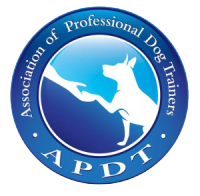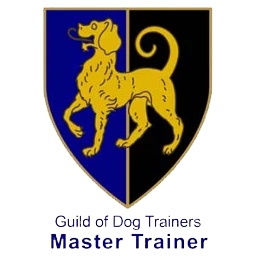Training your new furry friend is a long-term commitment, and the amount of time and patience it takes varies depending on the individual dog. For example, training rescue dogs can come with unique challenges, as can training puppies and older dogs. Also, different breeds come with different behavioural and genetic factors that influence their ability to learn. If you are looking to get a lower-maintenance dog, keep reading for our ultimate guide to the easiest and hardest dogs to train.
Dog Breeds That Are Easiest To Train
Every dog learns at their own pace, however, some breeds have more of a natural affinity for training. Additionally, you should always make sure that the place or person you are getting your dog from is a reputable source or breeder. This will help you avoid any unexpected costs or complications from unknown health conditions etc.
From our professional experience, dogs that are commonly chosen to be fully trained dogs due to their suitability for training include:
Cocker Spaniels
Generally, cocker spaniels are considered easy to train in the right hands, gaining their name from their job as gun dogs. They are also known for being happy and playful, as well as intelligent and willing to learn. This makes them highly receptive to positive reinforcement.
It is important to remember that they can also pick up bad habits as well as good, so regular and consistent training is key.
Border Collies
Due to characteristics such as intelligence and their background as working dogs, border collies can be an ideal choice for training. If you are an experienced owner, they should be relatively easy to train. Positive, reward-based training should be your focus from an early age.
However, it is important to keep in mind that they are very energetic, and need a lot of physical and mental stimulation throughout the day.
German Shepherds
German Shepherds are incredibly intelligent, loyal, and active. This can make them easier candidates for training.
However, they often have a strong guarding instinct; while this makes them ideal as protection or working dogs, careful socialisation and training is needed. Also, their size means that they need a good amount of exercise and space to be happy.
Golden Retrievers
Golden Retrievers come with a reputation of making a great family dog. They have high energy levels, as well as being gentle and intelligent. In fact, they thrive off of training, making them one of the easiest dogs to train.
Additionally, if you socialise them appropriately from a young age, the breed is likely to be more confident in new situations.
However, it is important that you do not leave them alone for too long as they like to chew, and need plenty of opportunities to exercise and get rid of their energy.
Labradors
Due to the breed’s background, Labradors are obedient and fast learners. This means that training them is likely to be easy. They are also incredibly affectionate, and have a lot of patience, making them ideal for families and children.
It is worth bearing in mind that they are full of energy, needing over two hours of exercise a day to keep them fit and happy.
Border Terriers
Border terriers love interaction and are adaptable and keen to learn new things, making them easy to train in the right hands.
They are very energetic and have big personalities, but as long as they get enough exercise they are happy to live in most environments. Also, terriers tend to like chewing things, so you should make sure they have plenty of toys available.
Poodles
Their love for running, retrieving and swimming, as well as their obedience, makes poodles great for training. They are also incredibly sociable and adventurous if given the right socialisation opportunities in their early years.
Dobermanns
Dobermanns love social interaction and are loyal and intelligent, making them a very popular pet option. Their breeding history as army dogs means that they make great working dogs, as well as family pets.
Additionally, their willingness to learn means that they benefit from ongoing training. However, it is important to note that they need at least 2 hours of daily exercise to burn off their high amounts of energy.
Corgis
Corgis are well-known for being friendly and fun-loving companions. Combined with their background as herding dogs, this makes them a perfect candidate for training. However, you should make sure to socialise with them as early as possible. This will help prevent any potential behavioural problems, such as nipping at heels.
Shetland Sheepdogs
Shelties are known for being gentle and playful, as well as very obedient. They are also highly intelligent, and very receptive to training. In fact, training is vital in ensuring that they grow up to be confident and sociable adult dogs.
These traits mean that they are likely to fit seamlessly into your family. However, you should be aware that their coat requires daily grooming to keep it in good condition.
Mixed-Breed Dogs
While it may be easier to predict the general behaviour patterns of pure-bred dogs, each dog is different, and you should not discount mixed-breed dogs in your search for a new pet. The basic principles of training will still apply for any type of dog. It is all about addressing any potential behavioural issues early on, socialising them properly and, most importantly, being patient and attentive to their needs.
However, you should bear in mind that mixed-breed dogs may come with a host of additional health complications. This is why you should always go through an approved provider like A&T Trained Dogs.
Which Traits Make Dogs Easiest To Train?
Traits such as loyalty, obedience, and friendliness make dogs the easiest to train. This is because they will be more eager to please, responding well to positive reinforcement.
Ultimately, the ease of training is dependent on the individual dog and their specific characteristics. For example, French bulldogs are eager to please, which can make them slightly easier to train. However, they are incredibly strong-willed and require clear boundaries to avoid them barking to get what they want. This means that they are likely to need additional training from an expert such as us.
Additionally, some dogs are more habitually suited to specific purposes, such as family protection. These include:
- German Shepherds
- Giant Schnauzers
- Rottweilers
- Belgian Malinois (mainly for farmlands)
- Bullmastiffs
- Dobermans
In this case, the perfect characteristics for protection include obedience, calmness, and the ability to be authoritative when needed.
The Size Of The Dog
As mentioned above, how easy a dog is to train depends on factors such as their temperament and life experiences. However, there are a number of traits that you should consider in relation to size. This is especially true when training a larger dog:
- Their size, and how it may be more challenging to have physical control of them in situations like lead training.
- Their higher likelihood of having more energy. This will mean that they need higher levels of mental stimulation and socialisation to prevent behavioural issues.
Generally, when it comes to larger dogs, breeds such as Labrador retrievers and golden retrievers are considered easier to train. This is because they are gentle and intelligent and thrive off of training.
What Is The Hardest Dog To Train?
It is difficult to say that one dog is the hardest to train. Training difficulty depends on a variety of factors, from breed, size, and temperament to age and health. Any traumatic previous life experiences or negative training techniques can also affect their behaviour and the training process going forward.
That being said, some dogs that would benefit from a more experienced owner when it comes to training include:
- Giant Schnauzers – due to their strong-minded nature.
- Shiba Inus – due to their very strong prey instincts and high energy levels.
- Beagles – due to their mischievous nature and high energy levels.
- Dalmatians – due to their high energy and strong will.
What Is The Hardest Dog To House/ Potty Train?
Generally, smaller dogs are considered harder to potty-train due to them having smaller bladders. However, there are a number of characteristics that can influence their likelihood of avoiding accidents and being receptive to training, including:
- Older dogs may suffer from health conditions that lead to a lack of bladder control. They may also have pre-established habits that are hard to break.
- More territorial dogs may be more likely to use the toilet indoors, to mark their territory.
- Rescue dogs may also not have learnt proper bathroom habits, whether they were a stray or kept in poor conditions etc.
How To Find & Train Your Perfect Dog
Regardless of the type of dog, their age, or temperament, you should never feel embarrassed to reach out for help. We offer a range of training programmes designed to help you feel more confident and build a bond with your dog, even after the course. We also offer a range of fully trained dogs for sale to suit your needs, including rescue dogs, puppies and more!
Get in touch with us online or call us on 01524 587315 to learn more.



